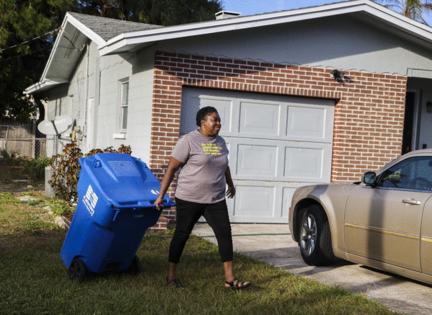How corporate investors are taking over Tampa Bay's neighborhoods
Published in Home and Consumer News
The calls, texts and letters started about two years ago. St. Petersburg, Florida, resident Tamika Morris has a pile of junk mailers just inside her front door and dozens of numbers blocked on her phone.
The messages are always the same. Companies, with names like “HomeInc” and “HomeVestors,” offer to pay cash “as is” for her Greater Pinellas Point home. No real estate agents need be involved.
Morris said the callers never say whom they represent but often ask her to name her price. Even her son, who’s name is not on the deed, gets calls from entities trying to buy her house.
“There’s no amount of money for me to be able to give up land,” said Morris, who bought her modest three-bedroom home in 2004 for $157,400. “Land is important in the history of our family. Having something to call our own is important.”
But the barrage of messages keeps coming — a common strategy for the real estate investment companies buying thousands of single-family homes in Tampa Bay’s already competitive housing market.
Housing in Tampa Bay is becoming increasingly corporate-owned, a Tampa Bay Times analysis has found. Large companies have amassed around 27,000 homes across three counties. More than 70% of these properties are linked to institutional investors backed by Wall Street and private equity.
The companies have fueled a growing single-family rental market, which proponents say creates more options for those who can’t afford to buy.
But while investors are not to blame for the region’s inflated rental and home prices, experts say they exacerbate the issue with tactics that shut out individual buyers. Disproportionate concentration of ownership among a handful of companies has been linked to rising rent and sales costs as well as neglected property maintenance and higher eviction rates.
“They drive up the prices and lower the (housing) supply,” said Lei Wedge, a professor of finance at the University of South Florida Muma College of Business. “They’re affecting people’s everyday life now.”
Families like Morris’ are caught in the crosshairs. In such a costly and competitive market, she fears her three children may not get the same opportunity for homeownership.
...continued
©2024 Tampa Bay Times. Visit at tampabay.com. Distributed by Tribune Content Agency, LLC.







Comments